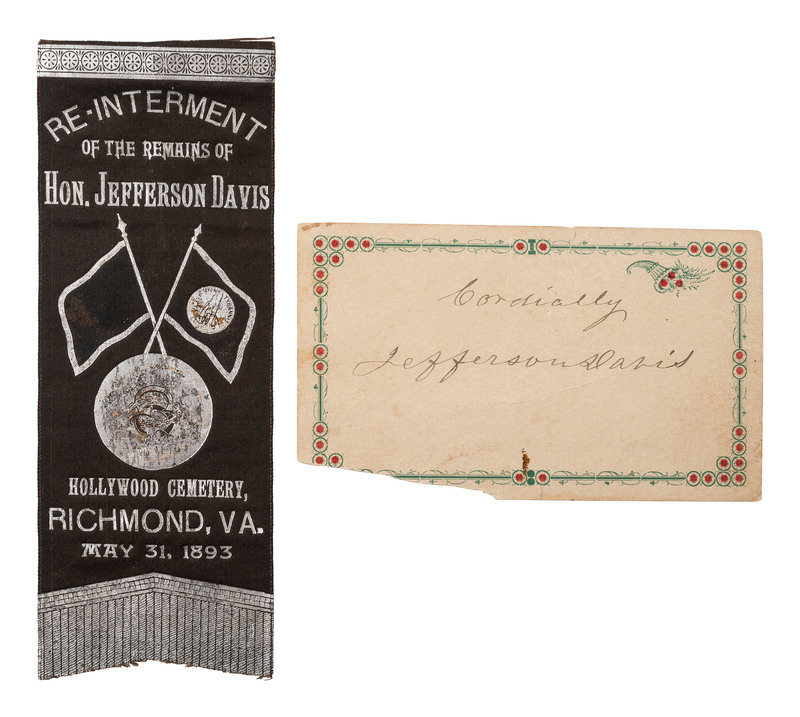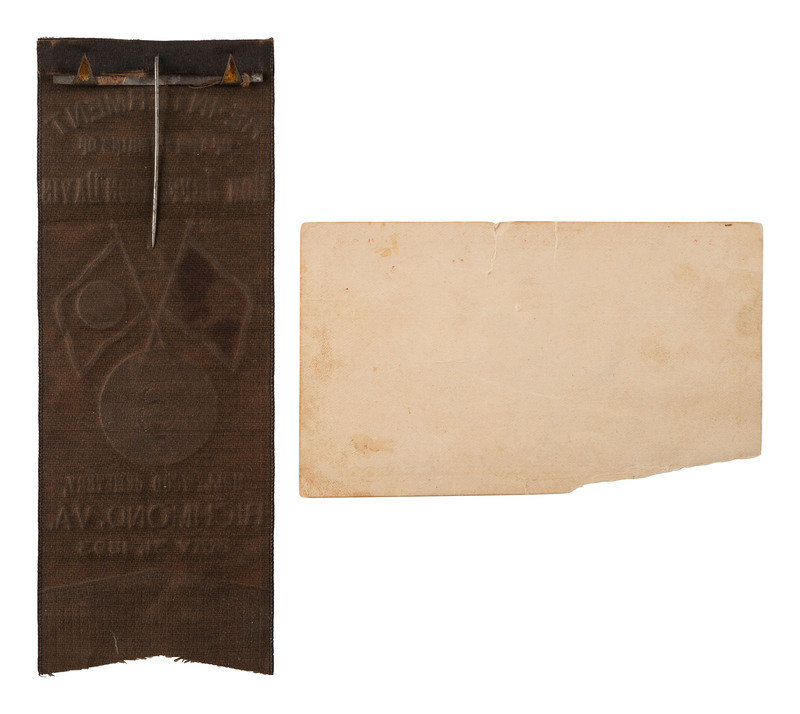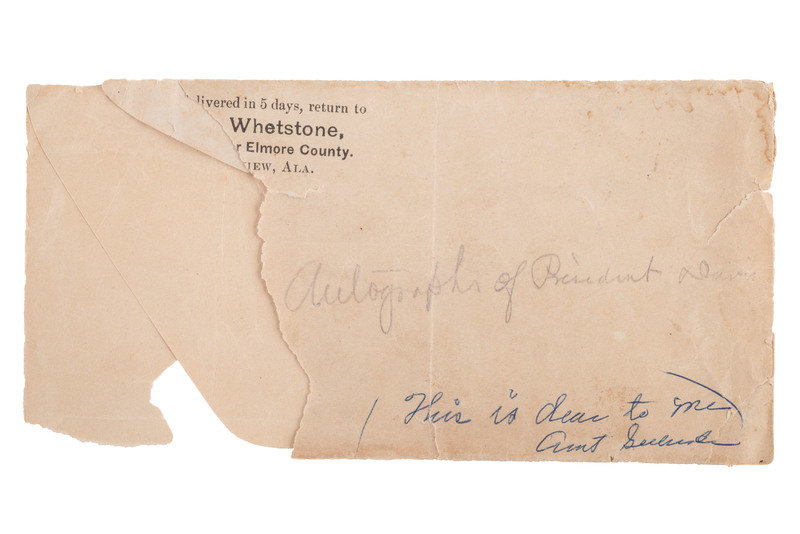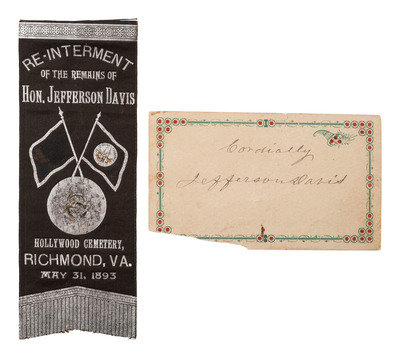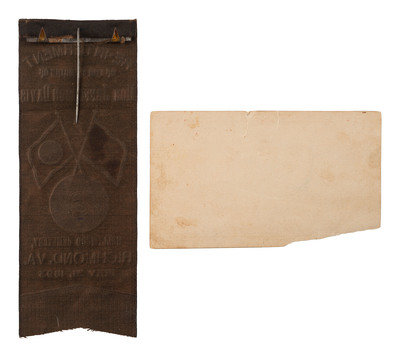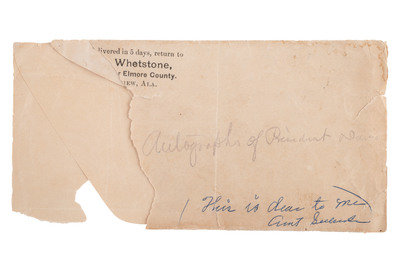5 1/8 x 3 in. card autographed, "Cordially, Jefferson Davis" (signature very good, loss to lower left corner and edge of card). Accompanied by partial envelope with Elmore County, Alabama, printed return address and notations, including "Autograph of President Davis," and "This is dear to me."
[With:] Re-interment of the Remains of Hon. Jefferson Davis. Hollywood Cemetery, Richmond, Va. May 31, 1893." 2 1/2 x 6 3/4 in. silk ribbon, stick pin on reverse (light surface wear to ribbon, light fraying to edges).
Born in 1808 in Fairview, KY, the youngest of 10 children, Jefferson Davis would be raised by his eldest brother, 23 years his senior, who, among other things, arranged for him to attend West Point, where he graduated in 1828. Davis served in the Black Hawk War, and was even assigned by his commanding officer, then-Col. Zachary Taylor, to escort Black Hawk to prison. Davis later also served in the Mexican American War. Although he trained for a military career, he ended up in politics, serving in Washington first in the House of Representatives, from the state of Mississippi (1845-1846), as Secretary of War under Franklin Pierce (1853-1857) and as Senator from Mississippi (1857-1861). This and a military background likely contributed to his selection as a war-time President, although he claimed he had no desire to be President of the Confederacy.
After the fall of the Confederacy, Davis was captured and imprisoned at Fortress Monroe for two years, but never tried for treason. It is thought that in addition to impeding reconciliation, a trial might validate the right of states to secede. He lived much of his later life at Beauvoir in relative peace. In November of 1889 he made a trip from Beauvoir to Brierfield, his plantation that he finally gained title to shortly before this. Much of the trip was in a cold, sleety rain. Davis came down with bronchitis along with malaria and refused to seek medical care immediately. After returning downriver to New Orleans, he was too ill to travel to Beauvoir, so he stayed for a while with a friend, Charles Fenner. He seemed to be recovering, but took a turn for the worse and died on 6 December.
The funeral was one of the largest New Orleans had ever seen. Davis was taken to Metarie Cemetery and interred in the A.N.V. vault. This arrangement was intended to be temporary until a final burial location could be arranged. Nearly every former Confederate state offered to provide space for the ex-President, some making the case that he had been born there, or lived there, etc. His wife, Varina, made the final decision that he should be returned to the capital of the Confederacy, Richmond, VA. Thus over three years later, with nearly as much pomp as the first round, Davis was removed from his vault and carried by train to the former capital. The organizers made certain to stop at places significant in Davis' life. The first stop was Beauvoir, then to Montgomery, AL, to the statehouse that was the first Confederate capitol and where Davis was sworn in as President. The funeral train had a car that was glass all around so those standing along the rails could see the casket from the outside. At Mobile, the engine was switched and the train continued on another rail line to Atlanta, then on to Richmond.
Eventually a monument with a life-sized statue was erected at Davis' grave in Hollywood Cemetery in Richmond.
